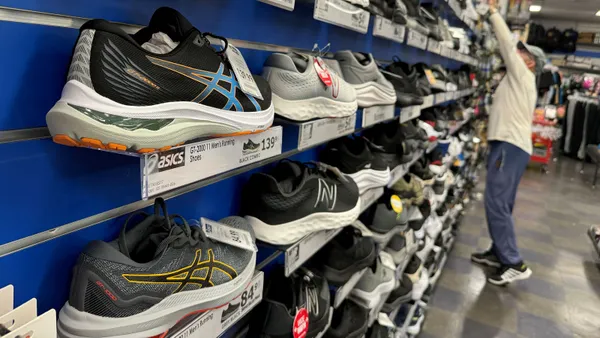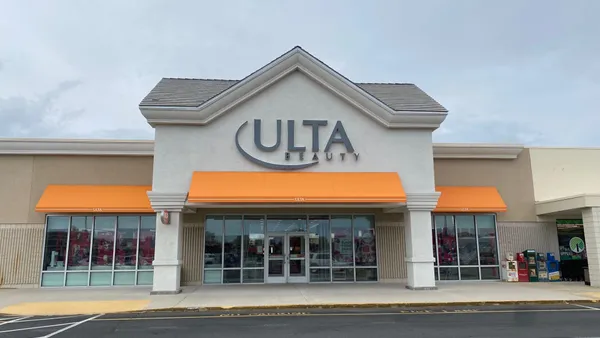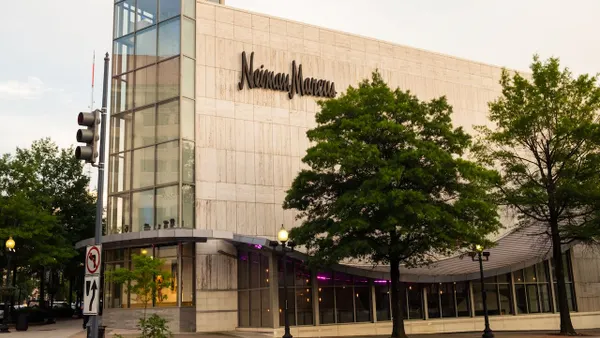Dive Brief:
-
Target on Tuesday reported that full year comp sales had their strongest performance since 2005, growing 5%. Store comps in the period rose 3.2%, while digital comps were up 36%, getting a boost from a 4.5% lift in traffic and beating expectations, according to Cowen.
-
For the fourth quarter, overall sales were flat at $22.7 billion, while overall comp sales grew 5.3% (store comps grew 2.9% and digital comps grew 31%). Net earnings were down 26.5% to $799 million from $1.1 billion in the year-ago period
-
Target continues to use its stores to boost its digital business and speed up delivery times; in the quarter, stores fulfilled nearly three-quarters of digital sales. Looking ahead, Target expects a low- to mid- to single-digit increase in comps and a mid- to single-digit increase in operating income.
Dive Insight:
Target continues to hit new milestones thanks to a two-year-old business plan that's now gaining traction. Within its end-of-year results, Target noted the $7 billion investment in 2017 toward three core areas to drive growth: speeding up its supply chain, building new private label brands and revamping stores to serve as hubs to fill e-commerce orders.
"Target's strategic initiatives, announced two years ago, are clearly bearing fruit, with its online push continuing to generate impressive gains," Charlie O'Shea, Moody's Lead Target Analyst, said in comments emailed to Retail dive. "Leveraging of stores to support these online sales remains compelling, with Target indicating that three-quarters of its online sales benefited from its stores."
That's also in part because stores are fresher. Last year, Target said it remodeled more than 300, and it plans to have over 1,000 remodeled by the end of 2020. Rolling out new small format stores in urban, suburban and college campus areas has also been a big part of that strategy. Last year, the company's fleet of such stores reached 87.
In its battles with Amazon and Walmart, Target is working to differentiate its stores. Like Walmart, Target is redesigning its stores to serve customers as convenience hubs, where shoppers can get in and out with what they need, either shopping themselves or picking up digital orders from the comfort of their cars. But Target has also remodeled many of its stores is to help drive inspiration, which plays into its "Tarzhay" ethos.
The mass merchant has taken steps in its private label mix to cement that "cheap chic" reputation, launching trendy brands in apparel and home goods, as well as in new areas like electronics and home essentials. Those brands are further lifted by the appeal of high-profile partnerships, like its recent one with Vineyard Vines.
Target is well-positioned for another strong year, though in remains to be seen what effect some new initiatives will have. Last month, the retailer launched an invite-only third-party seller program called "Target +" to court specific brands to sell on its website. A carefully curated marketplace could open up the company to more growth if it can offer the right digital assortment for customers.













